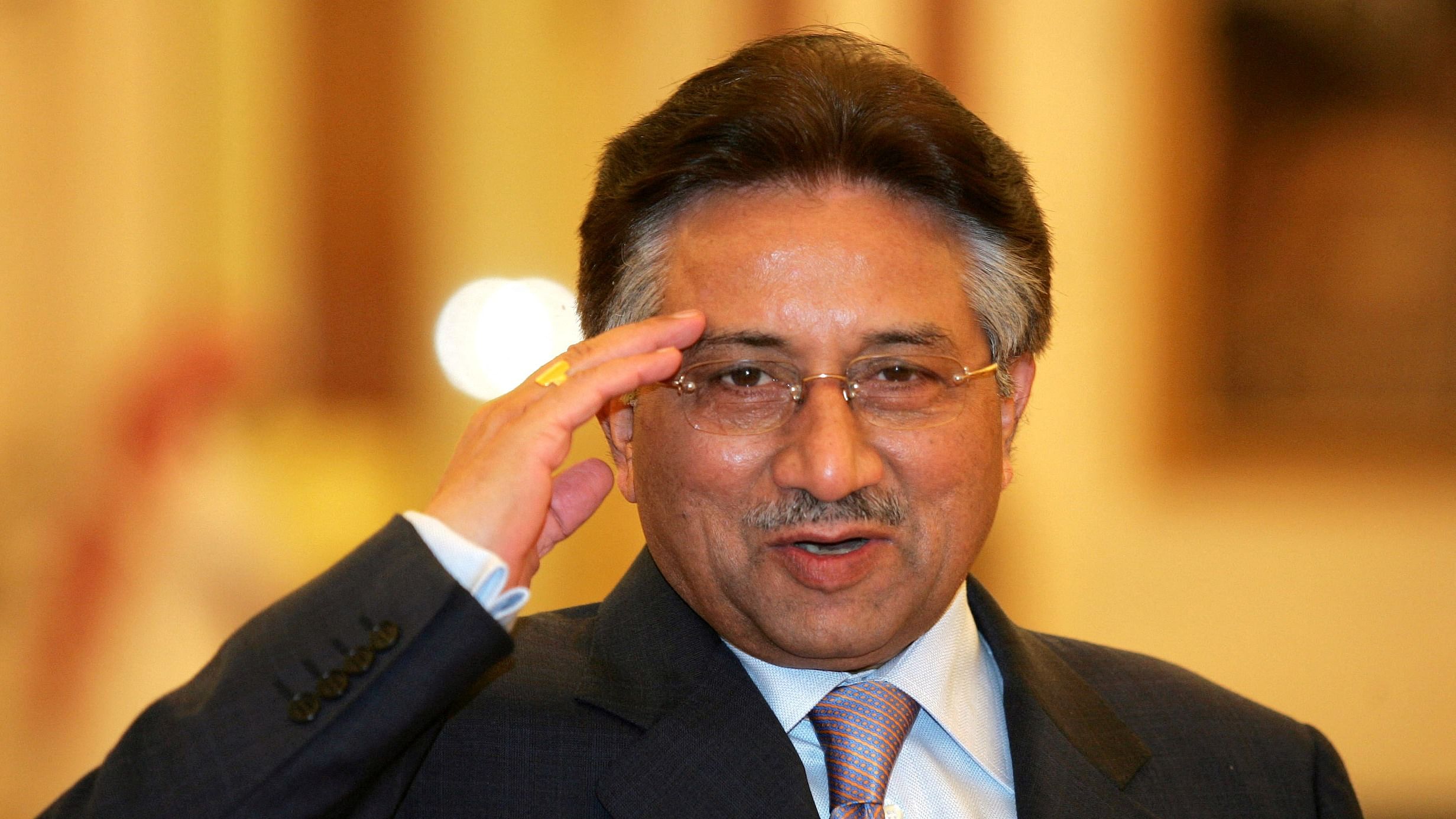
Pervez Musharraf
Credit: Reuters File Photo
Islamabad: Pakistan's apex court will start from Friday the hearing on a set of appeals related to conviction of now deceased former military ruler Pervez Musharraf, including one moved by the ex-leader, seeking to overturn his death sentence by a special court in a high treason case.
The three-judge special court of Justice Waqar Ahmad Seth, Justice Nazar Akbar and Justice Shahid Karim in the 2-1 split verdict on December 17, 2019 found Musharraf guilty of high treason under Article 6 for violation of the Constitution and sentenced him to death in absentia.
The judgement angered the country's powerful army that has ruled over Pakistan for most of the period since its 75 plus year existence. It was the first time a former top military official had faced such a sentence for treason in Pakistan. The death sentence was later annulled by the Lahore High Court.
Musharraf, through his counsel Salman Safdar, had filed the plea to set aside the conviction by saying that the trial was conducted and completed 'in sheer violation of the Constitution as well as the Code of Criminal Procedure (CrPC) 1898 as well as the suspension of the judgment in the interest of justice and fair play.'
After remaining in the cold storage for years, incumbent Chief Justice Qazi Faez Isa set up a four-member bench including himself and Justice Syed Mansoor Ali Shah, Justice Aminud Din Khan and Justice Athar Minallah to hear the case.
Interestingly, the Lahore High Court on January 9, 2020 declared the formation of the special court bench as 'unconstitutional' on the grounds that it was formed without the approval of the cabinet.
Later, the Sindh High Court Bar Association on January 13, 2020 challenged the Lahore High Court decision of declaring as unconstitutional the decision of the Special Court, and sought to set aside the high court judgment.
The petition contended that the high court verdict was contrary to the law laid down by the superior courts as well as against the dicta laid down by the Supreme Court in the case 2019 Lahore High Court Bar Association case. It pleaded to the apex court to restore the conviction by the Special Court for subverting the Constitution.
It would be interesting to note the proceedings as Musharraf died this year and the Special Court verdict to hang him even after his death for violating the constitution was not implemented. Musharraf was in the UAE at the time of decision by the court and never returned until his death when his body was flown and he was buried in Karachi.
'We direct the law enforcement agencies to strive their level best to apprehend the fugitive/convict and to ensure that the punishment is inflicted as per law and if found dead, his corpse be dragged to the D-Chowk, Islamabad, Pakistan (a large public square near Pakistan’s parliament, presidency, and Supreme Court) and be hanged for 03 days,” the verdict read.
Musharraf’s trial and conviction was first of its kind for violating Article 6 of the Constitution, which states, “Any person who abrogates or subverts or suspends or holds in abeyance, or attempts or conspires to abrogate or subvert or suspend or hold in abeyance the Constitution by use of force or show force or by any other unconstitutional means shall be guilty of high treason.”
The case was based on his imposition of a state of emergency in 2007, after which dozens of judges were placed under house arrest or sacked.
The case had been pending since 2013, when his old rival, Nawaz Sharif, was in power. Musharraf was booked in the high treason case in December 2013 and indicted on March 31, 2014, but the trial was delayed and he left for Dubai two years later to seek treatment. Musharraf was born in the old city of New Delhi in 1943, four years before the partition. Later his parents moved to Pakistan.
Musharraf, the architect of the Kargil War in 1999, died in Dubai after a prolonged illness in February 2023.
The 79-year-old former military ruler, who had been in the UAE since 2016, was undergoing treatment for amyloidosis at a hospital in Dubai.